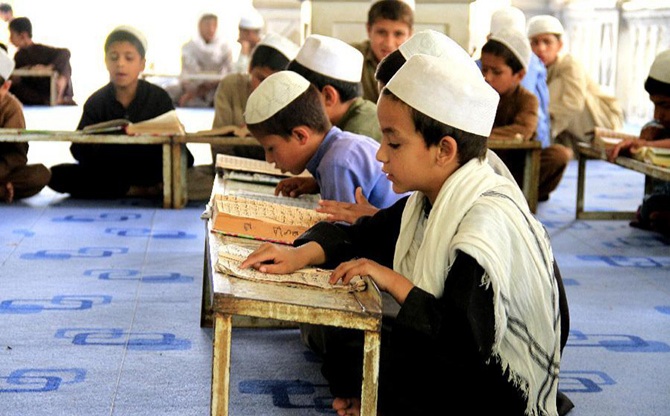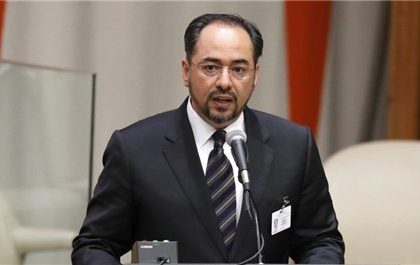The Taliban group has transformed primary, secondary, and teacher training schools into religious schools by establishing 14,000 religious schools in various provinces across the country, engaging approximately 940,000 boys and girls in education in these religious schools. Recently, the Special Inspector for the Reconstruction of Afghanistan, appointed by the United States, announced that around one thousand new religious schools have also been registered in the Ministry of Hajj and Endowments of the Taliban group.
The report further states that the Taliban group has converted government schools into full-time religious schools, with financial support provided by the government budget and donations. According to the report, the Taliban group in several provinces across the country has converted buildings and facilities for teacher education, primary and secondary schools into religious schools, and has initiated the process of hiring teachers for these schools.
Earlier, the Taliban Ministry of Education had announced that within the past two years, 14,000 religious schools have been registered under the Ministry of Education of the group, and they have contributed two hundred million kabuli rupees, to these schools.
According to official statistics from the Taliban Ministry of Education, the total number of students in government and private religious schools under their administration amounts to 930,950, of which 94,612 are girls.
While the Taliban group has prevented Afghanistani girls from attending schools and closed universities for over two years during their rule, an unprecedented process of school-building is taking place in Afghanistan by this group.
Meanwhile, experts in religious affairs and citizens of the country say that the Taliban group, by establishing more educational schools, is promoting the spread of extremism in the minds of the young generation of the country and indoctrinating them as soldiers defending their ideology.
According to the citizens, the promotion of Taliban thinking in these schools is based on issuing decisive fatwas regarding right and wrong, conflict, and killing. They are educating the youth with the belief that everything opposed the Taliban group must be destroyed.
Abul Alim Ibrahim Khel, a resident of Nijrab district in Kapisa province, stated in an interview with the RASC News Agency that the Taliban group recently built a large religious school In this province, where they have recruited 600 adolescents from various parts of the province for Islamic education. According to him, the youth studying in this school for the past four months have become more interested in jihad, martyrdom, and struggle rather than religious matters, and their minds have been directed towards the path of war and massacre by certain clerics employed by the Taliban group as teachers in these institutions.
On the other hand, some religious scholars have criticized the Taliban group for instrumentally using Islam in their schools and indoctrinating the younger generation with violence in the name of religion. They argue that the lessons in Taliban schools are accompanied by incitement, a warrior spirit, and an instigation to reach the virgins (Hoors) of paradise and the embrace of fortresses. This deviates from notions of worship, piety, and tranquility, as the focus of this group’s ideology is not on attaining paradise, devotion, righteousness, and peace, but rather on jihad, killing, and being killed.
According to religious scholars, the Taliban group continues to indoctrinate young people in their schools by distorting Islamic values. They claim that the more they kill, the more heavenly rewards and beautiful women they will receive, and that the Prophet Muhammad impatiently awaits their actions, while God takes pleasure in killing the group’s enemies, which contradicts any righteous act and defies the purpose of creation.
Mullah Abdul Matin, one of the religious scholars in the country, has described the educational system of Taliban schools as follows:
The distinguishing features of the Taliban’s religious schools, which have increased significantly recently, are Salafism and the promotion of Taliban ideology. They present incorrect thoughts to young people regarding the authenticity and accuracy of other Islamic sects. According to this religious scholar, the Taliban clerics, using forged traditions and fabricated accounts, advocate for a militant mentality and slaughter in service of their own political agendas. They manipulate the young minds through sexual manipulation, glorification of maidens, and constant sexual descriptions.
On the other side, political analysts and university professors have strongly emphasized the dangerous consequences of the Taliban’s school-building and the promotion of extremist political ideologies. They argue that these Taliban-influenced schools, derived from Deobandi and Wahhabi schools in Pakistan, pose a severe threat to the future of the country. They fear that the output of these Taliban-influenced schools will be dangerous ideological soldiers lacking the skills of debate and tolerance, irrational self-destructive fighters who serve Taliban’s agenda, and the establishment of large militias to suppress and eliminate opposing ideological groups.
Concerns about the increasing number of religious schools with Taliban ideologies and the distortion of Islamic values within these schools have raised serious concerns among citizens and intellectuals in the country. Previously, the Taliban group, through a message attributed to the hidden leader, Mullah Hibatullah, announced the establishment of more schools in the country, stating that they have created multiple religious schools in all Afghanistan provinces, targeting the children of their slain fighters for recruitment.
According to the orders of the alleged leader of the Taliban, in each province of the country, a large school and three to ten religious schools are established in each district. The hidden leader of the Taliban has also instructed that every person studying in these schools will receive a daily stipend of 150 kabuli rupees, the local currency. The Taliban, after seizing control of Afghanistan, now aggressively promotes religious schooling but restricts girls from attending schools beyond the sixth grade, essentially closing the doors of universities and educational centers to them.






